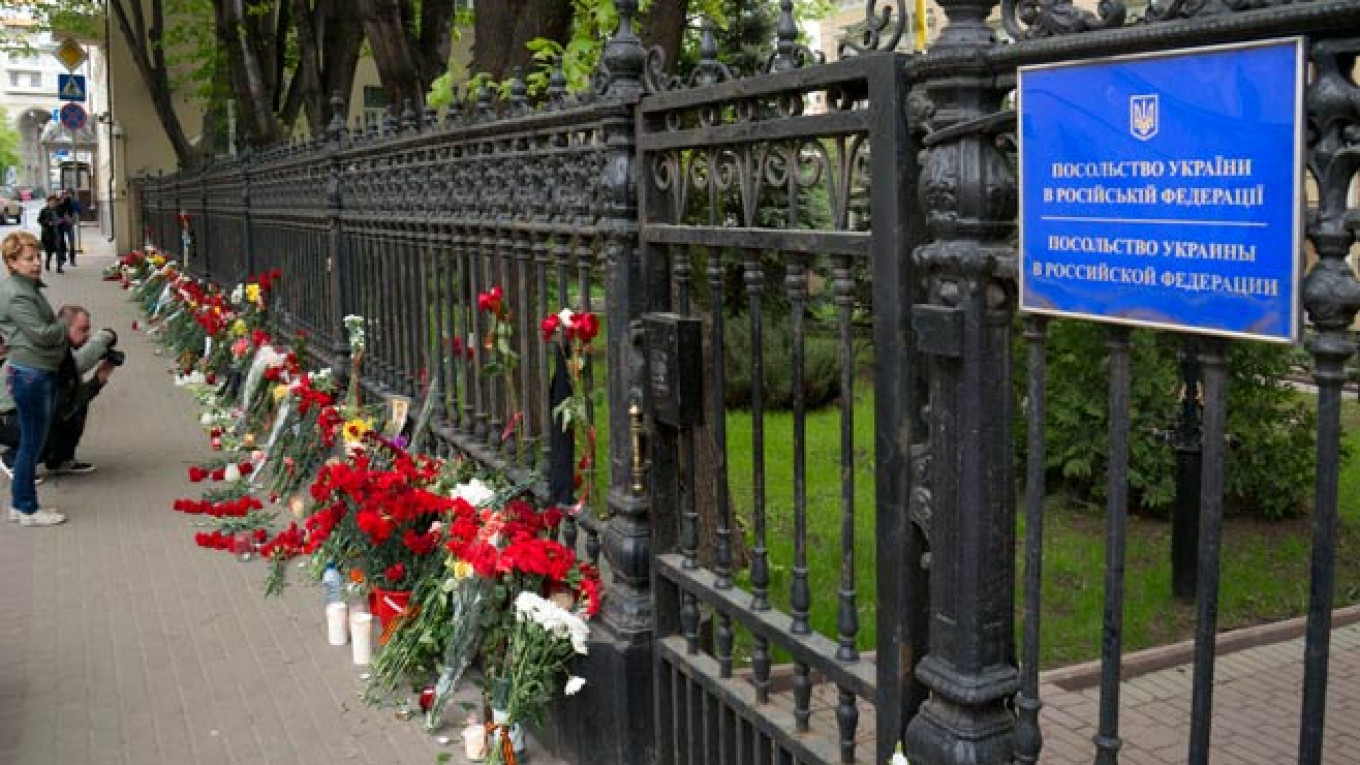The European Union called on Saturday for an independent investigation into the deaths of at least 42 people in southern Ukraine after a riot ended with dozens of pro-Russian protesters killed in a burning building.
The street battle between supporters and opponents of Russia in the Black Sea port of Odessa that ended in the deadly blaze in a besieged trade union building was by far the worst incident in Ukraine since a February uprising that ended with the pro-Russian president fleeing the country.
EU foreign policy chief Catherine Ashton said the EU was "deeply saddened by the many deaths and injured in yesterday's events in Odessa."
"The facts which led to this tragic loss of so many human lives must now be established in an independent investigation and those responsible for these criminal acts brought to justice," she said in a statement.
The Kremlin, which has massed tens of thousands of soldiers on Ukraine's eastern border and proclaims the right to invade to protect Russian speakers, has said the government in Kiev and its Western backers were responsible for the deaths.
Kiev said the violence was provoked by foreign demonstrators sent in from the self-proclaimed republic of Transdnestr, a nearby breakaway pro-Russian region of Moldova where Moscow has a military garrison. It said most of the dead who had been identified so far were from there.
The upheaval in Ukraine broke out after former President Viktor Yanukovych turned his back last year on an agreement on closer trade and political cooperation with the 28-nation EU in favor of a $15 billion bailout from Russia. That sparked street protests that ended with him fleeing Ukraine.
Ashton said the EU urged everyone to exercise restraint and not to exploit events in Odessa "to fuel more hatred, division and senseless violence."
"All political forces must now assume their responsibility and engage in a peaceful and inclusive dialogue to find a joint way out of the crisis," she said.
EU leaders added their names to a statement by the Group of Seven leading industrial nations last week that accused Moscow of taking "no concrete actions" in support of the Geneva agreement between Ukraine, Russia, the U.S. and the EU.
A Message from The Moscow Times:
Dear readers,
We are facing unprecedented challenges. Russia's Prosecutor General's Office has designated The Moscow Times as an "undesirable" organization, criminalizing our work and putting our staff at risk of prosecution. This follows our earlier unjust labeling as a "foreign agent."
These actions are direct attempts to silence independent journalism in Russia. The authorities claim our work "discredits the decisions of the Russian leadership." We see things differently: we strive to provide accurate, unbiased reporting on Russia.
We, the journalists of The Moscow Times, refuse to be silenced. But to continue our work, we need your help.
Your support, no matter how small, makes a world of difference. If you can, please support us monthly starting from just $2. It's quick to set up, and every contribution makes a significant impact.
By supporting The Moscow Times, you're defending open, independent journalism in the face of repression. Thank you for standing with us.
Remind me later.






